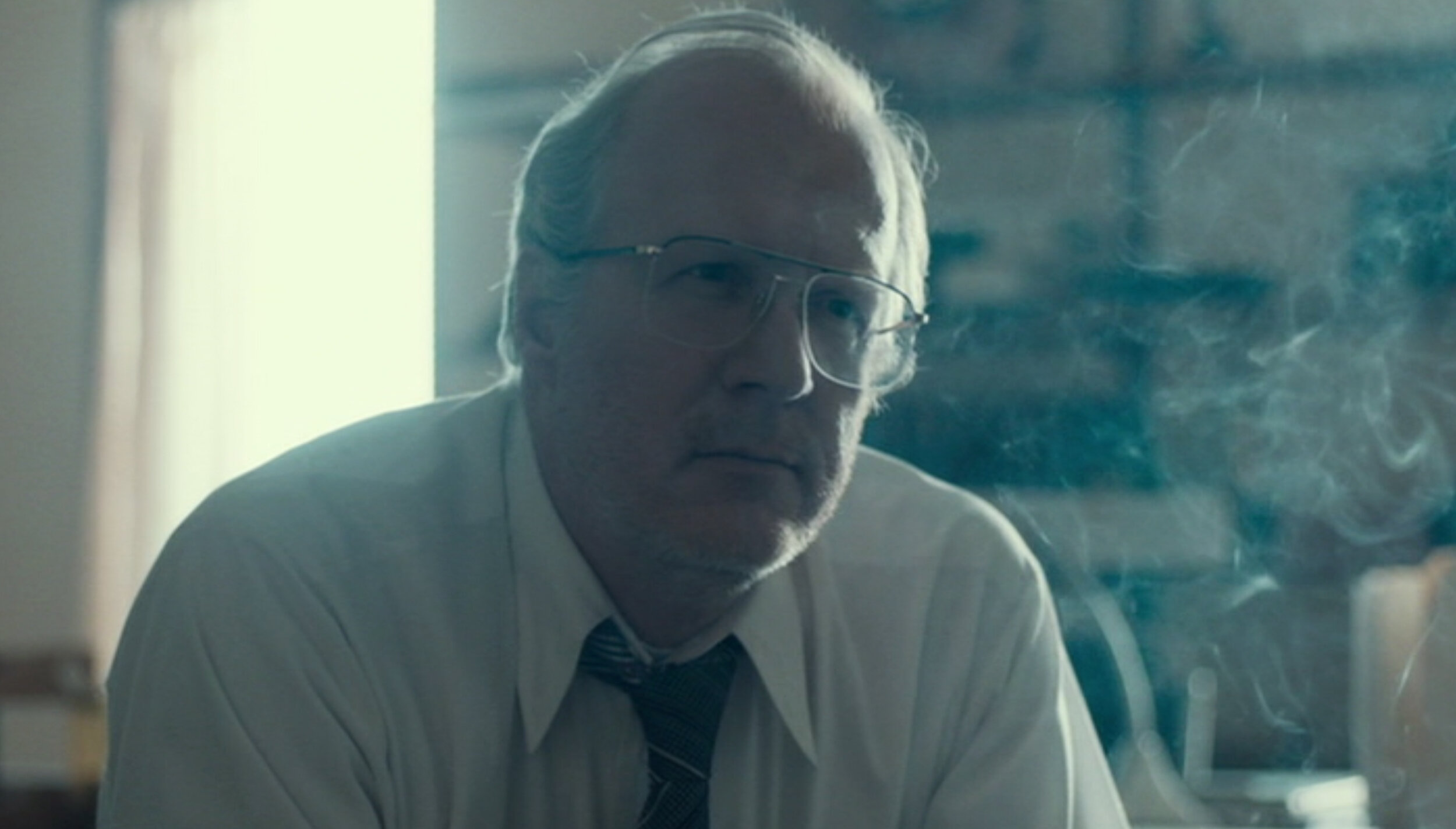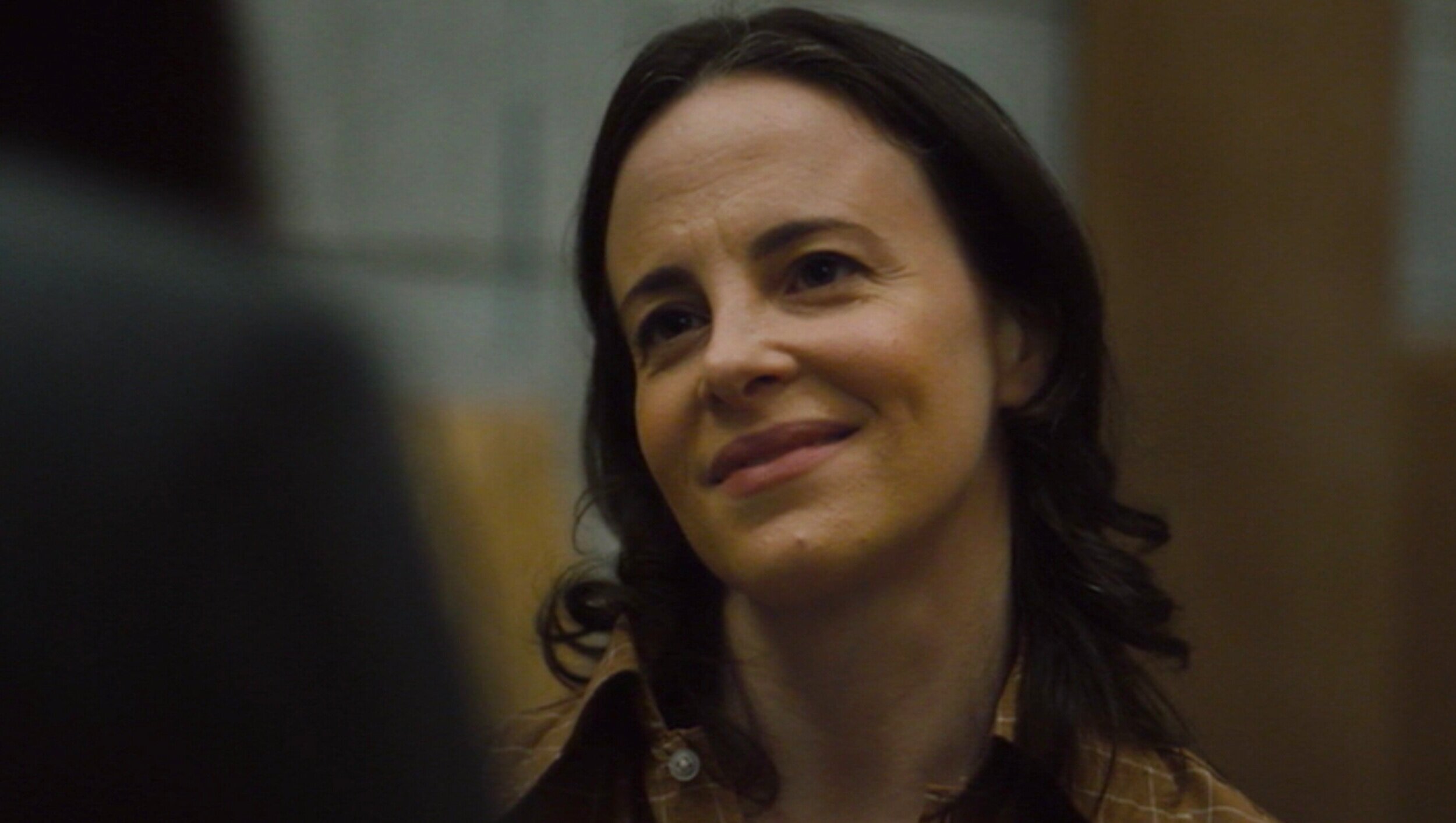The End of the World
Christine Chubbuck, a television reporter at a local news station in Sarasota, Florida, committed suicide during a live broadcast on July 15, 1974. Christine (2016) is based on this true story; her shocking on-air act was the first of its kind and mentioned openly during the film’s initial release. Although arguably knowing this plot point alters the way one watches the film, it makes Rebecca Hall’s portrayal of Christine all the more poignant and gut wrenching. What would otherwise be a formulaic story of a career girl trying to weather professional and personal setbacks becomes a thriller that twists tighter and tighter as the days pass and we get closer to the middle of July.
It’s the summer of 1974. Watergate is breaking wide open, and people are glued to the news like never before. Christine Chubbuck is excited about the buzz surrounding her chosen profession of television journalism, but here she is stuck at a WZRB, a nowheresville station in Sarasota.
The type of hard-hitting coverage that wins Pulitzers and catapults its investigators into major markets like New York and Chicago doesn’t fly down here. Jokey weather reports and strawberry growing contests fill out the nightly program’s back nine, and “if it bleeds it leads” is just gaining traction as an industry-wide slogan. Christine’s dry think pieces are routinely bumped for a grizzly car crash or another morsel of senseless violence that boosts ratings but provides no substantive insight for audiences.
Christine makes her displeasure known around the newsroom and isn’t winning any popularity contests; although her colleagues admire her tenacity and “oddball” attitude, she’s making herself a major thorn in the side of station boss Michael. She’s appearing on air less and less often. Unless she changes her attitude, she’s on her way out of a job that she feels is already beneath her.
Admittedly Christine is wound a bit tight, but at the start of the film we see her as an ambitious young woman who has to stay organized. She lives with her mother and is the sole financial support of the two, and beyond her work at the station she volunteers at a home for special needs children and spends her free time honing her on-camera presence or scanning the local police station’s radio frequencies, trolling for potentially hot stories. It’s easy to languish in a jerkwater town like Sarasota unless you stay ahead of things.
Christine (Rebecca Hall) with George (Michael C. Hall) in the editing room
Despite her occasional saltiness Christine has a few allies in the newsroom: Jean (Maria Dizzia), her lighter counterpart, another woman in her early thirties trying to climb the ladder as a camerawoman, and George (Michael C. Hall), the station’s lead anchorman and object of Christine’s unrequited affections. Jean and Christine help one another with professional projects in their off-hours and have developed a tenuous kinship where Jean weathers Christine’s dark moods with good humor and words of encouragement.
Station boss Michael (Tracy Letts), left; camerawoman Jean (Maria Dizzia), right
While Christine’s ambition is her driving force and the main trigger for her depression, the film is quick to humanize her bosses and the male-dominated environment of WZRB. While her boss Michael (playwright and actor Tracy Letts) is snappish and forever haggard and unshaven, he’s not unsympathetic to his young reporter’s point of view. He concedes that she’s by far the smartest person working for him, but points out that it’s her combative attitude and sometimes underwhelming think pieces, rather than her gender, that are her biggest professional obstacles.
Knowing how high the stakes are, every win that Christine manages to grab is cause for celebration and each additional setback is crushing. While a fictional character can triumph over adversity and break through the glass ceiling before the end credits, knowing that Christine Chubbuck chose to do neither gives each seemingly trivial development an unbearable weight. We are inside her head during her increasingly dark moods and are pulled back from the brink along with her every time there’s a kind word or a gesture of hope.
Perversely, the shocking violence that Christine railed against in her own reporting is precisely what initially draws us in to her story. Director Antonio Campo’s film rewards our attendance with a measured, nuanced, and sympathetic portrayal of depression without judgment or consolation. Watching Christine forty-five years after the events depicted, what’s surprising about the film is not how dark the inevitable ending is but just how much hope exists at its outset.
Christine is available via streaming for free on Vudu and Kanopy, and free with membership on Netflix, Hulu, and the Criterion Channel.






